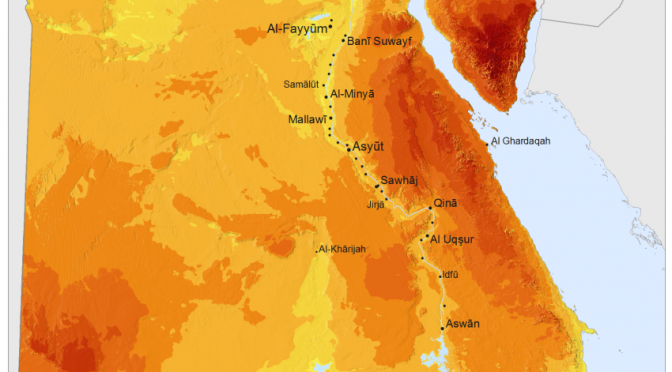The 2035 Integrated Sustainable Energy Strategy, which builds on previous strategies, emphasises the importance of renewable energy. Egypt intends to increase the supply of electricity generated from renewable sources to 20% by 2022 and 42% by 2035.
Hafez Salmawi, former managing director of the Electricity Utility and Consumer Protection Regulatory Agency, said Egypt has benefited from renewable energy, and has begun the transformation phase, developing the method and management of electricity networks, and attracting many Arab and international companies to invest in this promising sector.
According to the 2035 strategy, Egypt will produce 61,000MW of renewable energy, of which 31,000MW solar power, 12,000MW concentrated solar power, and 18,000MW wind power.

Salmawi added that the entry of Arab and foreign investors in the local market has led to a decrease in the cost of producing renewable energy in Egypt, and will increase investment opportunities during the coming period, but the rules for the IPP system that includes the construction of stations and the sale of electricity directly to consumers must be developed.
He stated that the contractual systems established by the government will attract many companies, and Egypt is still the best destination for investment in renewable energy, and upon the full liberalisation of the electricity sector the demand of factories will increase and convince companies to go for renewable energy, due to the rise in traditional electricity prices.
Mohamed Salah El-Sobki, head of the New and Renewable Energy Authority, said that the plan that Egypt started will not stop, and the market has become attractive for investment compared to other countries, due to the availability of a suitable legislative environment.
He pointed out that Egypt can produce 42% of its electricity from renewable sources by 2035, but the pace of work must be accelerated, opening the way for the private sector to expand in energy projects, in accordance with the new Electricity Law.
El-Sobki stressed that the private sector is always looking for additional incentives to pump more capital in the market, which must be taken care of, especially as the government’s vision is integrated and relies heavily on the private sector to achieve its strategy.
The International Renewable Energy Agency (IRENA) recommended, in studying the prospects for renewable energy in Egypt, that seven major measures must be considered to accelerate Egypt’s absorption of renewable energy.
IRENA stressed the need to update the strategies of the electric power sector to reflect the growing benefits of renewable energy in terms of lower costs and others, as well as simplify regulations and clarify institutional roles and responsibilities for wind energy and solar energy development.
IRENA stressed that there is a need of future updates to the energy strategy to reflect the potential of biomass, reform the existing market framework to improve the economic feasibility of projects, and conduct comprehensive campaigns to assess the capabilities of solar and wind energy sources.
In addition, IRENA advised expanding in renewable energy complexes to support risk mitigation and ensure financial feasibility of projects, developing a masterplan to enhance local manufacturing, and creating a thriving local industry.
Egypt has already followed three of these recommendations, including
expanding in establishing complexes, such as Benban Solar Park, updating
the energy strategy, and comprehensively assessing the capabilities of
solar and wind energy.
Economic development in Egypt depends on the energy sector, which
represents 13.1% of gross domestic product (GDP). In order to meet the
growing demand for energy, the Egyptian government has developed an
integrated and sustainable strategy to diversify energy sources to
ensure the stability of energy supply.
The strategy aims to strengthening the role of renewable energy and increasing energy efficiency in addition to rehabilitation and maintenance programmes in the electricity sector.
Egypt confirmed its commitment to spreading renewable energy technologies on a large scale, and the total installed capacity of renewable energy sources is 5,500 MW, including 2,800 MW of hydropower and about 2,700 MW of wind and solar energy, of which 1,465MW from Benban solar park and 250 MW from a wind farm recently opened.
Mohamed Farag, Daily News Egypt


